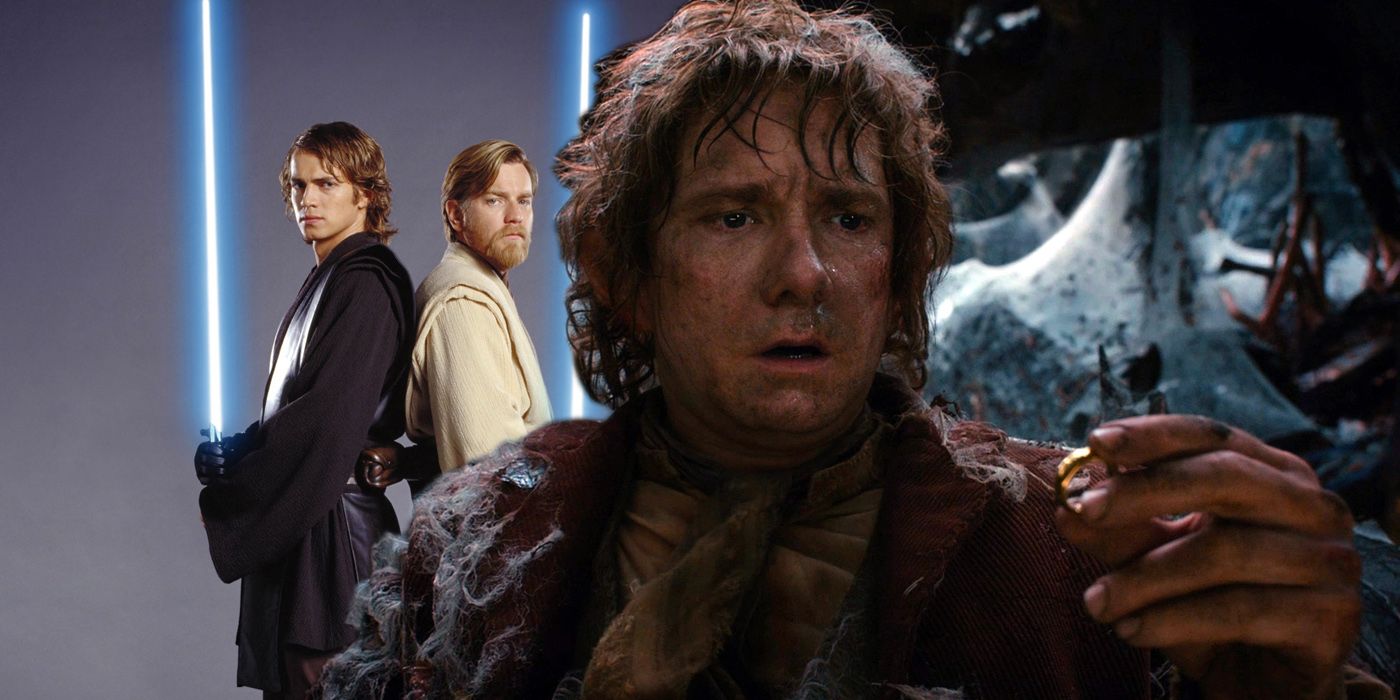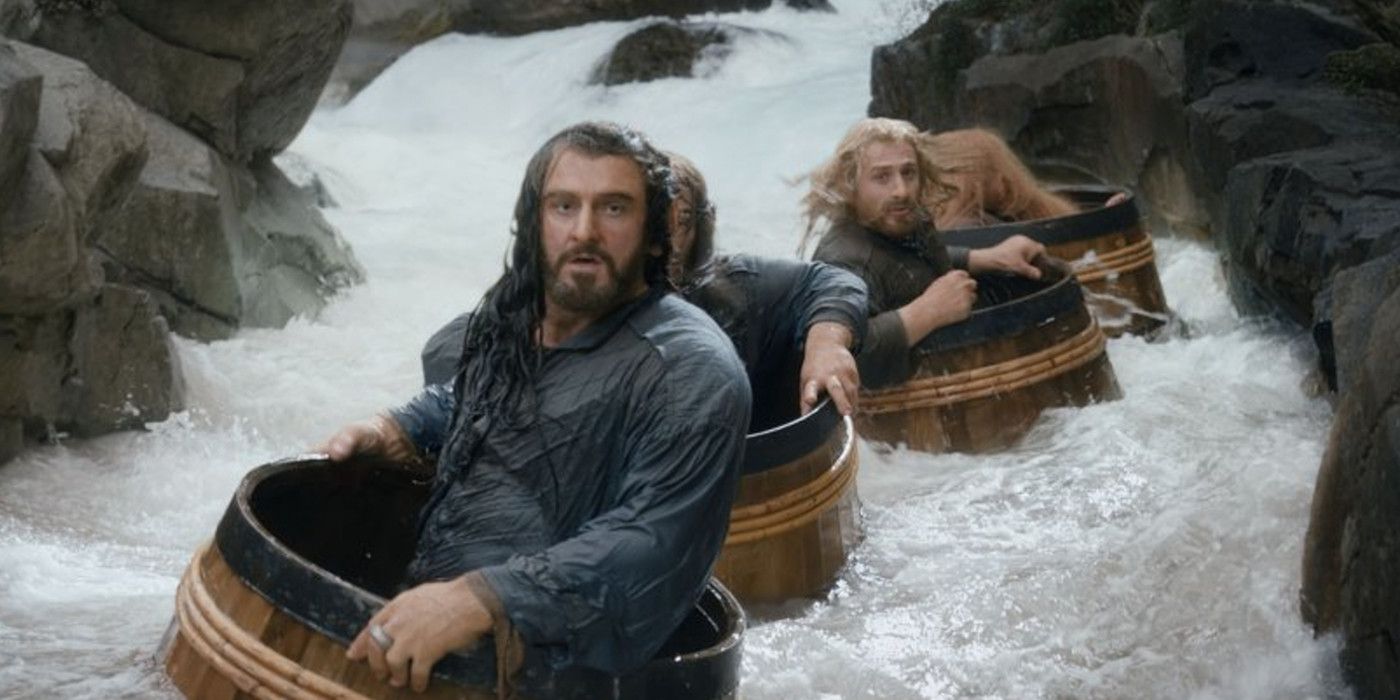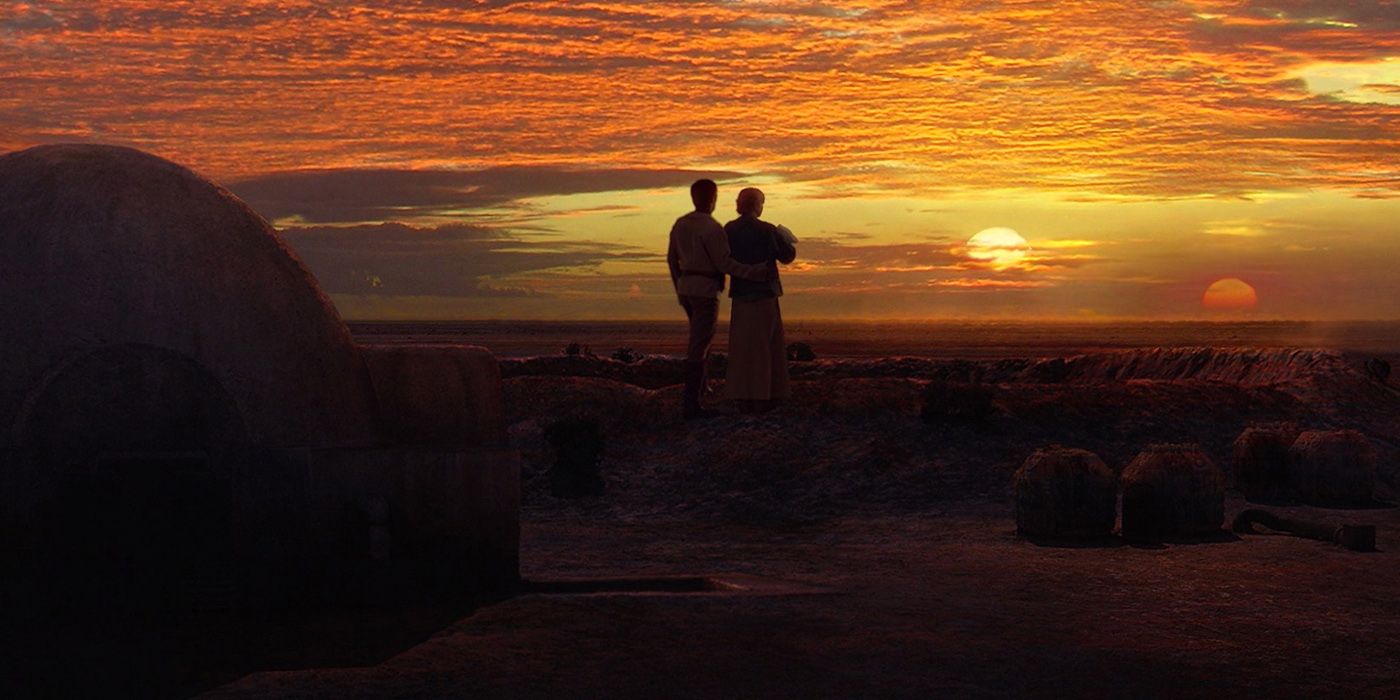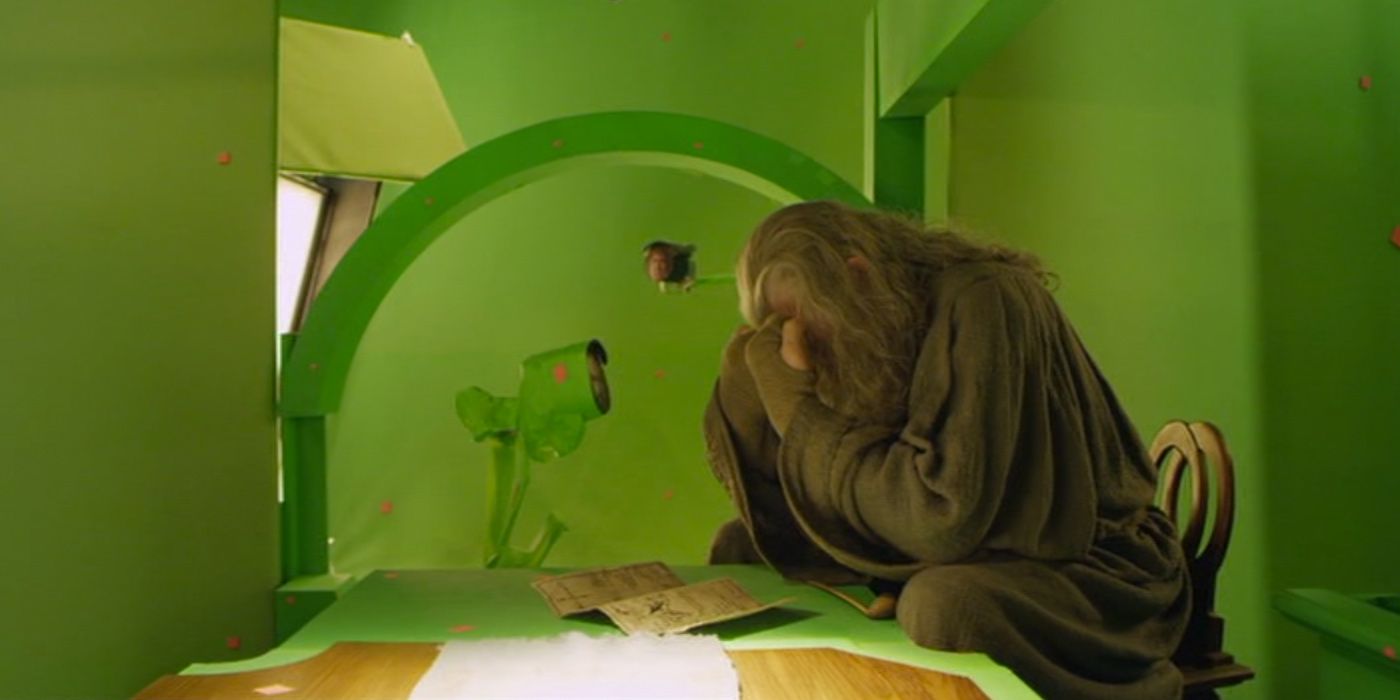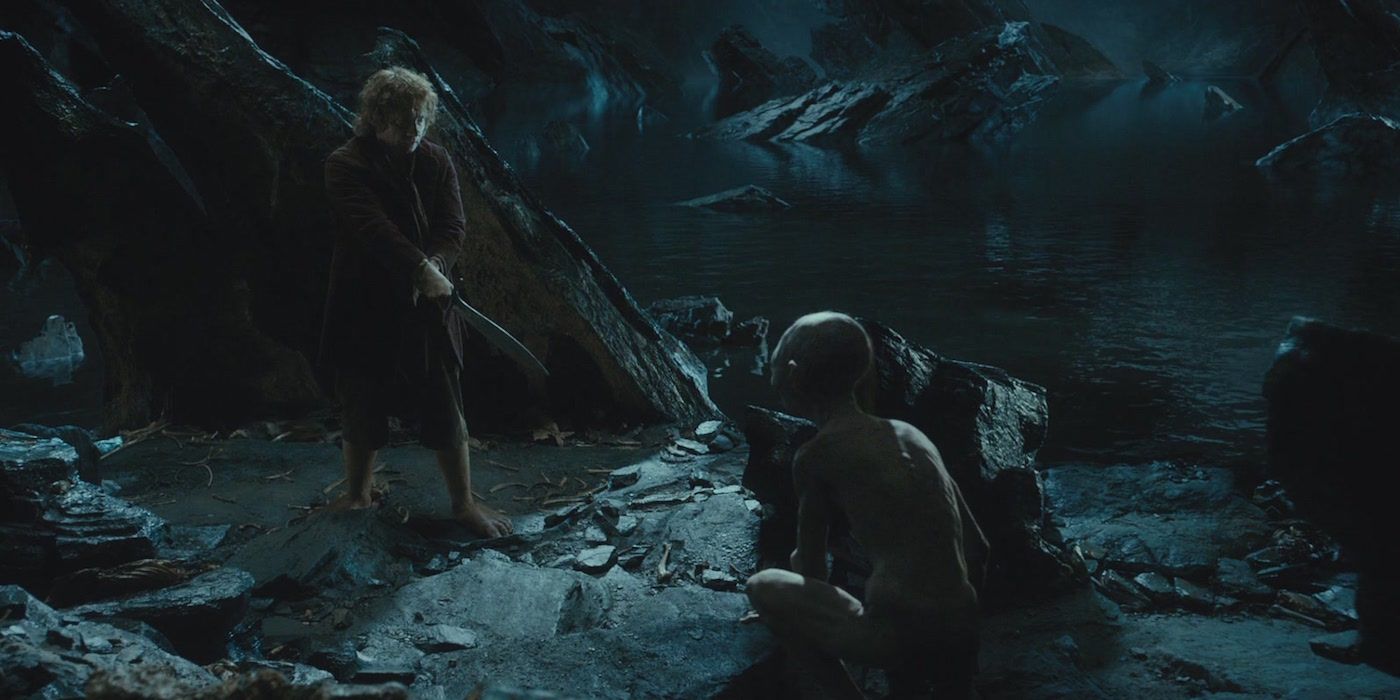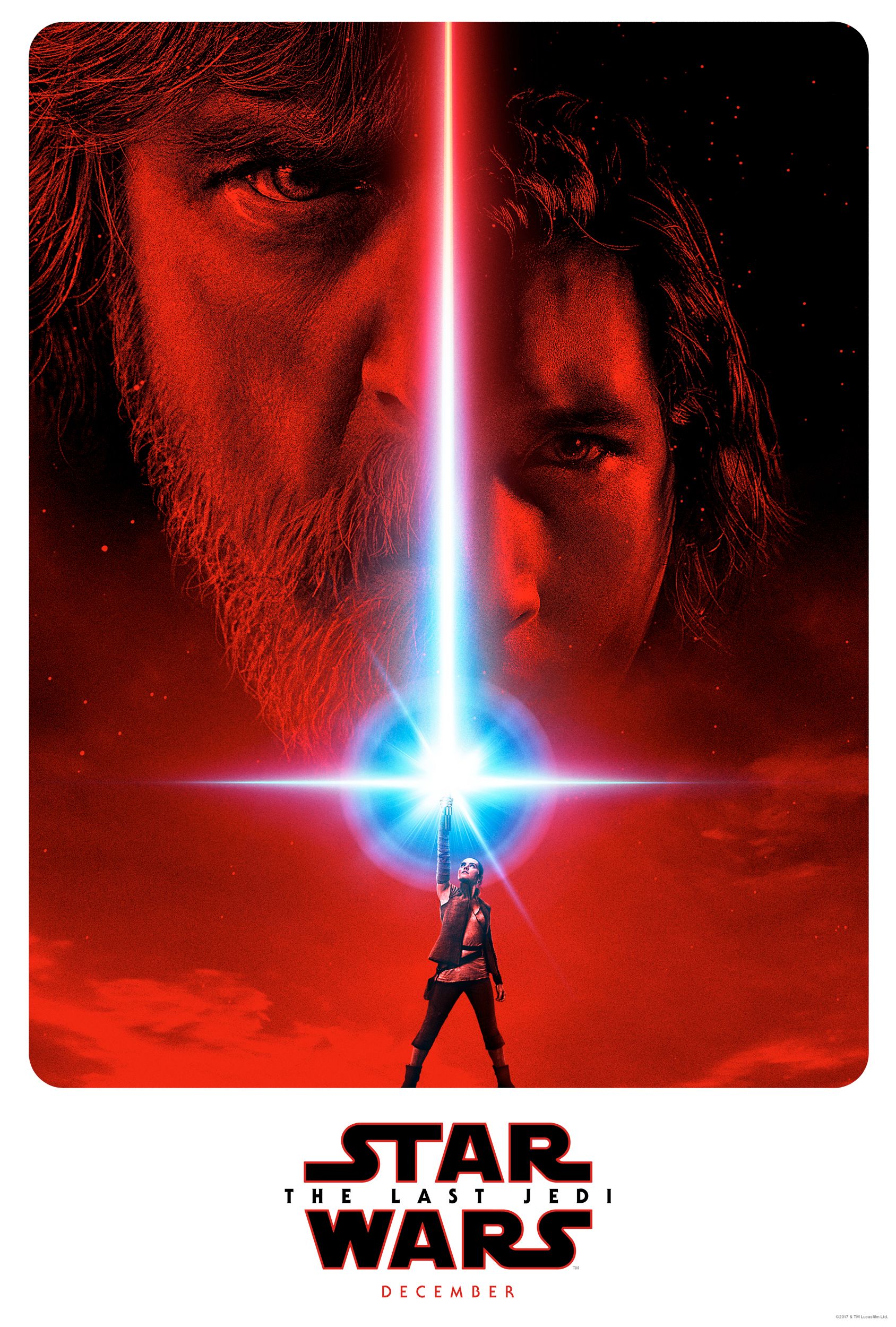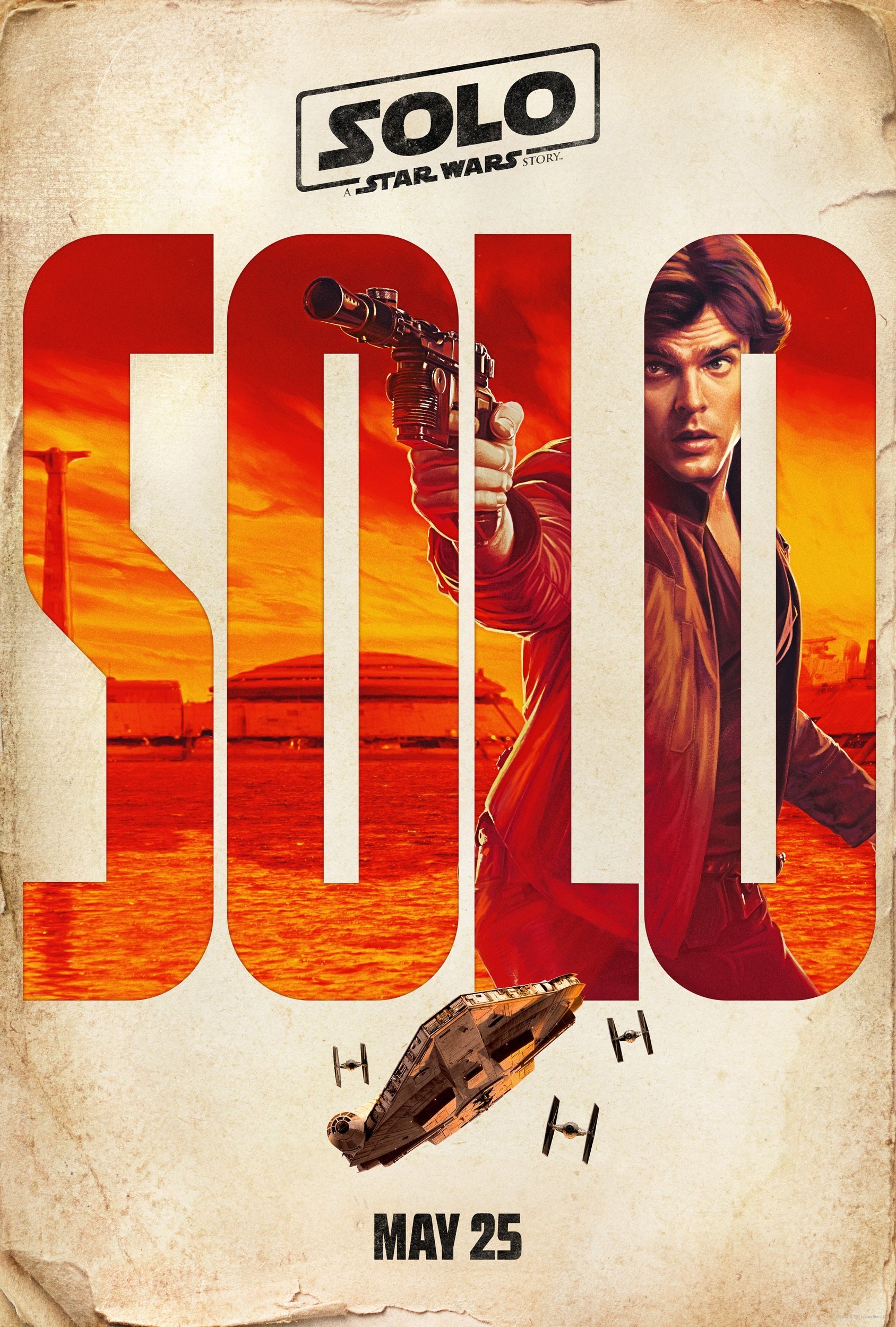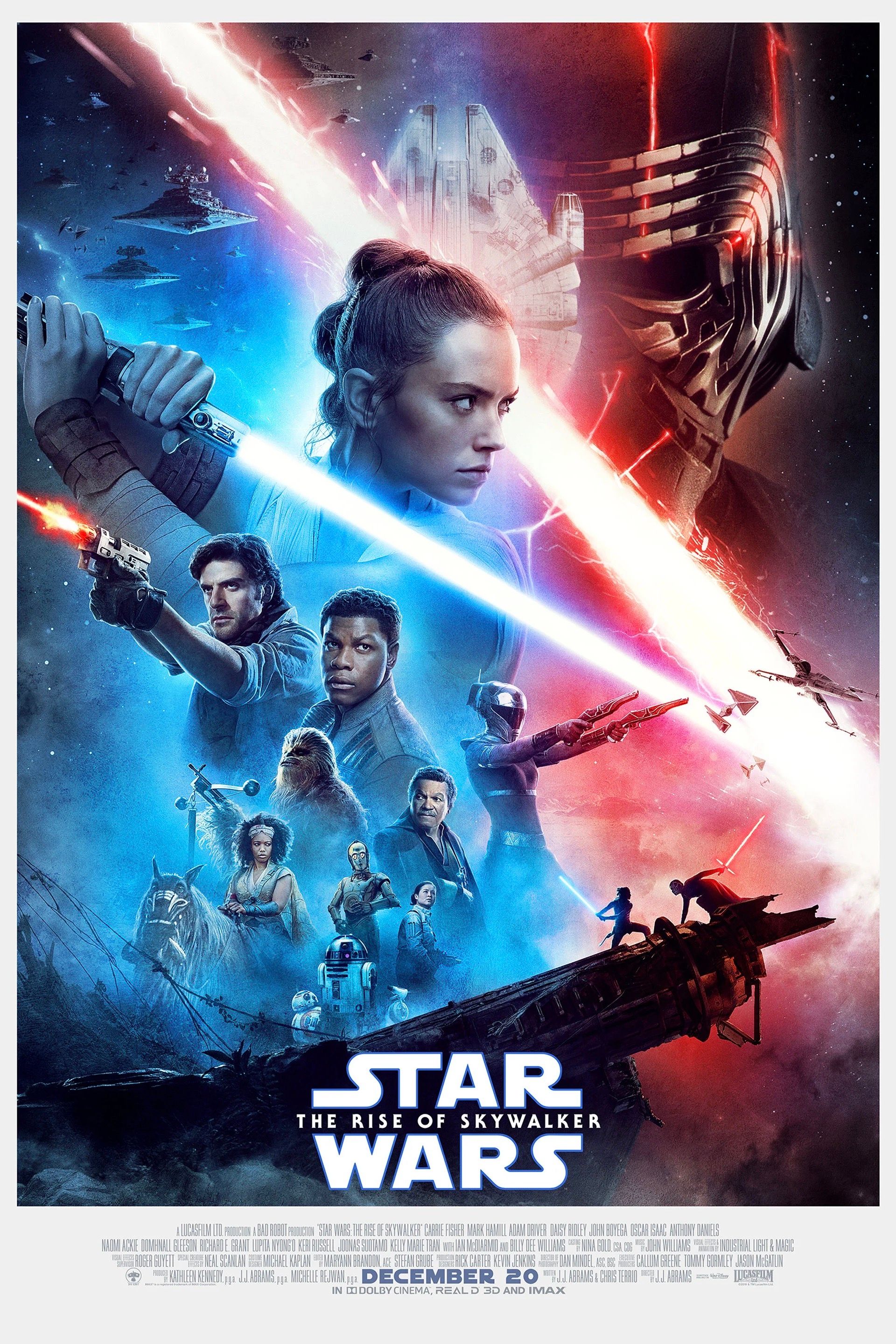Something that should not have been forgotten has been lost: the simple truth that The Hobbit Trilogy is worse than the Star Wars prequels.It's nothing short of astounding that, in an online discussion pit where every new release is held up against any vaguely applicable past example, these two immensely similar projects aren't contrasted more often; both were belated prequel returns to a classic franchise by a director once lauded as a visionary that ostensibly told one plot thread hinted at in the originals but were really expanding the whole fabric of the world.Yet here we are three years on from The Battle of the Five Armies, the limp finale of the Middle-earth Legendarium (unless The Silmarillion is plundered in a bid for brand extension), and The Hobbit still manages to avoid the really intense criticism that met its space opera cousin; few would claim it comes close to The Lord of the Rings trilogy, nor that it's a great work without such a lofty predecessor, yet to negatively pit it against Episodes I-III is often taken with a sense of shock.That's is more than a little weird; compare The Hobbit to the Star Wars prequels and you have to face that, in addition to those broad conceptual similarities, they really do share many of the same flaws. As anybody who slogged through all three movies knows, the main problem with The Hobbit is that it's a slight fantasy novel stretched to an almost nine-hour epic; there's a tonal disparity between a series of jovial episodes and the world-threat of Sauron, and so much extra content is forced in, from The Return of the King's appendices to decidedly un-Tolkien focus groups. But if you go deeper into the issues that make it such a poor adaptation, you'll notice something oddly familiar.
The Hobbit Is Everything People Say The Star Wars Prequels Are
The major problems with the Star Wars prequels are now so well established in online culture they barely need stating, but here they are for effective comparison: the director surrounded him by yes men who wouldn't challenge his brash creative decisions; an overreliance on CGI created a false-feeling world; there was an obsession with leaning on the previous films rather than presenting a fully-rounded set of new characters and situations; the narrative centered on ill-defined politics, making something both boring and plot hole-filled; and, above all, the entire enterprise was driven by financial concerns outside of the main franchise.
What's so striking about The Hobbit is how every single one of those oft-cited prequel complaints can be directly leveled against Jackson's films with equal-if-not-greater intensity. As writer-producer-director, he too had such a stranglehold on production that saw so much padding added; The Hobbit is so dominated by needless computer effects that Ian McKellen broke down filming his first scene and complex practical orc costumes were overdone with CGI in post; despite the expansion to take in the wider Middle-earth story, no time is actually invested in expanding any of the thirteen dwarves we're stuck with; that wider story is so flippant Gandalf has to keep reminding what's going on, while the list of clashes with canon in The Battle of the Five Armies alone is a separate article; and the entire series only exists because Jackson had invested too much money in a fruitless pre-production period with Guillermo del Toro that the movies simply had to be made - it's not toys, but it's still a highly cynical jumping board for something that needs a filmmaker working at the top of their A-game.
None of this is to say Star Wars doesn't have these problems, but that The Hobbit has them to an equal if not more severe degree; we're dealing with two movie series coming from very similar areas displaying ballpark systemic problems.
The Star Wars Prequels Are At Least Complete
What pushes the prequels above the competition is the differences in storytelling. Whereas The Hobbit is one piecemeal narrative stretched over three movies and divided up seemingly at random (The Desolation of Smaug is a TV show cliffhanger), each of The Phantom Menace, Attack of the Clones and Revenge of the Sith tell their own distinct, complete story while also existing as part of a whole. Ignoring the mistakes in realizing that (both series have their fair share of, shall we say, dumb ideas), you have a coherent narrative where characters have fairly defined arcs and develop; something that can barely be said of the full Hobbit enterprise, let alone the individual films. Compare further to The Lord of the Rings, which is a single story yet never makes it so a single movie feels incomplete.
Of course, much of this comes down to personal opinion and how you react to the prevalence of certain issues through the movies (as well as your interest and investment in the respective franchises). But even then, that still begs the question of why only one gets the hate?
There Is No Definitive Takedown Of The Hobbit Yet
In the documentary accompanying The Battle of the Five Armies Extended Edition, there's a six-minute section that details Peter Jackson burning out on the Erebor set when the lack of pre-production (due to entering principal photography so soon after del Toro's departure) catches up with him; he starts sending the crew on extended lunches so he can simply write the afternoon's scenes before eventually deciding to stretch the then two-part story into three to allow himself a pause to actually plan out the finale. You can watch it below.
It's a candid reveal that shows the director at his lowest ebb and succinctly explains every problem with The Hobbit: all the scrappy plotting and characterisation is due to there being no firm script, while the story was only bloated to allow for more development time (you can also presume the CGI reliance is done to paper over obvious cracks). And yet despite being an official account spelling out the movie's problems released less than a year after the trilogy wrapped up, it seems to have had little impact on how the films are viewed.
In contrast, Star Wars has no such objective nexus point yet the prequels' productions have been shredded by fans; while there's definitely explanatory elements of the movies' problems in the various behind-the-scenes documentaries - think "it's so dense" or "I may have gone too far in a few places" - these had to be dug out, strung together and the greater narrative inferred. Again, that's not saying the cracks aren't there, just that there's less of a recognition of the more recent films' flaws.
Part of this will be the passage of time and a delay in the full post-release opinion settling. Simply put, there have been no monolithic pieces of criticism taking The Hobbit down of the same prolificacy as Red Letter Media's Mr. Plinkett reviews of Episodes I-III; three feature length reviews-cum-analyses that provide a damning takedown of the prequels that has pretty much shaped the discussion around them, solidifying many of the problems discussed earlier in the accepted vernacular. For The Hobbit, while there are certainly impressive video essays exploring why they're bad - Sage Hyden's 6-part Why The Hobbit Sucks series is an equally thorough deconstruction - none have had a truly influential impact.
Plinkett's first review came out in 2009, four years after that trilogy wrapped up, so in theory we're not too far off the comparable point for The Hobbit. So why hasn't the mood shifted yet?
The Big Difference Is Hype
The differences in reception ultimately come from the differences in release. The Hobbit was certainly anticipated but unlike the overwhelming excitement that accompanied The Phantom Menace there was some tempering; disappointment from, yes, the prequels and Indiana Jones and the Kingdom of the Crystal Skull had burned geek culture, hunger was further lessened by the shorter gap between trilogies and with King Kong and The Lovely Bones Peter Jackson had highlighted his filmmaking flaws, specifically his obsession with overreaching in adaptation. The bar was lowered, meaning a backlash like that one that skewered Star Wars was less likely.
Here is also where one of The Hobbit's evident flaws shielded it. Being an incomplete film that was essentially setup, it was impossible to fully decry An Unexpected Journey's meandering pace as it could prove essential in the greater fabric. Of course, that doesn't mean it's any stronger as a standalone but it earned the film the benefit of the doubt in many circles (it also had Gollum, which for many is an extra star on review). This reevaluation never really happened, likely due to the speed of release; with a new film every year, as opposed to one every three, Jackson pretty much rode the initial hype wave on all three movies without any problems with the previous movie becoming embedded.
-
Long term, though, the legacies will end up the same. Already they share similar Rotten Tomatoes rankings (one apiece in the 50s, 60s and 70s) and both trilogies have had a similar impact on their director, with them taking a step away from the big leagues to focus on producing (Lucas oversaw Star Wars while Jackson is producing Mortal Engines) and plans to only return behind the camera for smaller projects. Culturally things haven't caught up yet - but it's fair to expect they will.
After a reactionary backlash built on disappointment, opinion on the Star Wars prequels is beginning to normalize out; no longer the worst things ever, most can at least appreciate them as the heavily flawed yet incredibly interesting efforts they are. As this happens, it's probable The Hobbit will go the other way as audiences rewatch and realize that while Jar Jar's bad, so too is discount Wormtongue in a dress stuffing coins into his bra during a supposedly epic final battle.
Yes, that really happened.

